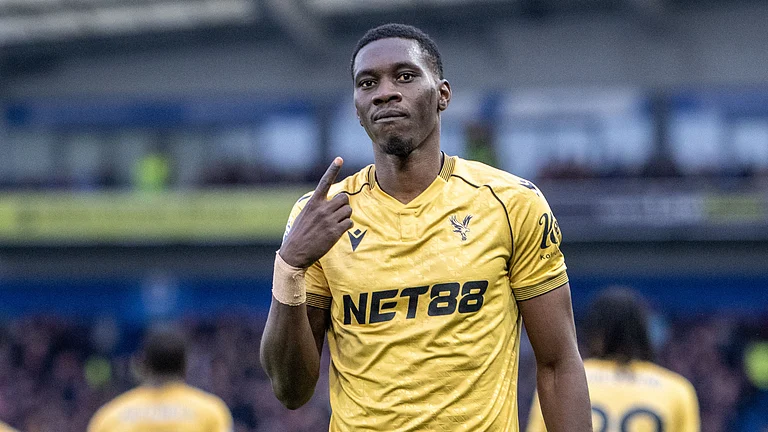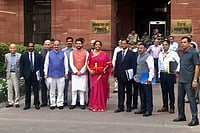Shashi Tharoor’s withdrawal in view of an imminent defeat in election of the UN Secretary General is deeply to be regretted. This is not because he is an Indian but because he was, almost certainly, the man best suited for the job. After a brief spurt of heightened importance in the first half-dozen years after the Cold War, the UN has been on the decline ever since. Today it has all but ceased to be the guardian of international peace and the arbiter of the legitimate use of force that the San Francisco charter intended it to be. Instead it has been reduced to the status of a janitor who is called in to clear the debris away after the big boys have feasted upon a nation and gone their ways.
There is no better proof of this disastrous change than resolution 1701 of the Security Council, on the war in Lebanon. Whereas only a few years earlier the UN Security Council would be convened within hours of the outbreak of hostilities in any part of the world, on this occasion it took the Council five weeks to convene. And the resolution it passed did not contain a single word of condemnation of Israel. Instead it put all the blame for the ‘hundreds of deaths and injuries…, extensive damage to civilian infrastructure and hundreds of thousands of internally displaced persons’, upon the Hezbollah. By implication therefore the Resolution blamed Lebanon for its own destruction and the deaths of more than 1200 of its citizens. Thus has the UN legitimized reprisals by one country against the civilian population of another.
Yet the need for a global governing body that can perform the tasks that were laid down for the UN in 1945 has only increased. Globalisation has meshed the fates of countries and peoples together in ways that could not even have been imagined five decades ago. Economic interdependence has all but worn away the tariff walls and non tariff barriers that were the ramparts of the nation state. At the same time a rising awareness of the importance of human rights has made it necessary for the global community to place limits upon the hitherto unchallenged sovereignty of nations over their own subjects. Today the world is in a transitional phase wherein the rich and powerful nations are unwilling to surrender their unrestricted sovereignty even as they insist that others do so, and the US in particular is trying to reconcile the conflicting demands of national sovereignty and global governance by expanding the scope of the former to envelop the latter.
But this chaotic situation cannot last for very long. Sooner or later the world will realize that it needs a consensual political dispensation just as it has recognized the need for a consensual economic one today. At that time we will have to rediscover the original purpose of the UN, and restore to it the power it needs to carry it out. The intervening years will be the most difficult ones for that organization. Kofi Annan , the outgoing Secretary general realized this very early in his eight years’ tenure and, taking advantage of the Millennium, began to construct a template for the UN of the future. The task of clothing it with flesh will fall upon his successor—possibly on more than one successor. That is where Tharoor had a distinct advantage over his rivals. For by virtue of more than 20 years in the UN and eight as one of Annan’s closest advisers, Tharoor understood not only how the UN had to be reshaped but the limitations to the process and the pace at which they could be overcome. South Korea’s Ban Ki-Moon , who has topped all the straw polls, will have to startafresh, and no one knows what baggage he will bring with him to the job.
In retrospect it is clear that being an Indian proved to be Tharoor’s Achilles’ heel. Traditionally the SecretaryGeneral's post has never gone to the citizen of a major country. India is not only one of the largest countries in the world but its economic and political importance is growing by the day. To make matters worse, India is not, and has never been, a popular country. Its neighbours have been its inveterate detractors, and its unresolved conflict with Pakistan has cost it the support of the vast majority of the Islamic bloc not only at he UN but in numerous other fora.
Tharoor therefore had, at best, an outside chance of becoming the next Secretary General. India could have played its cards better: the right course might have been to support some other candidate officially but circulate Tharoor’s name informally as a compromise candidate in case a deadlock ensued. In retrospect it also seems likely that India may have banked too heavily upon its newly minted friendship with the US to swing a large number of votes Tharoor’s way. That did not happen. In fact the US stuck to its practice of voting for a candidate from a small country closely allied to it, whom it could control more easily. If India did expect the US to back Tharoor, one can only hope that it has re-learned the lesson that in international relations there are no friends, only interests.

























